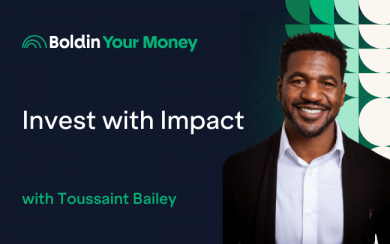13 Ways to Improve Your Financial Decision Making
Some sources estimate that we make an astounding 35,000 decisions per day. That works out to roughly 2,000 choices per waking hour. Fortunately, most of those decisions (what to eat for breakfast or what shoes to wear) are made quickly and instinctively. However, there are many life choices that merit a much more thorough approach. In particular, financial decision making benefits from deep analysis, careful research, and keeping emotions in check.

Here are 13 tips to help you improve your financial decision making.
You are more likely to get where you want to go if you know where “there” is and have a plan for getting there. Stay focused on your long-term goals and you will make better decisions.
Research has found that people who are maintaining a financial plan make better decisions and have better financial outcomes. They save more, invest and use debt appropriately, re-balance, budget, and more.
The NewRetirement Planner is the most powerful and complete tool available online for long-term planning.
2. Slow Down, Give Yourself Time to Be Rational
Financial decisions should not be made quickly. This is one of the key take-aways from Nobel prize winner Daniel Kahneman’s groundbreaking book, Thinking, Fast and Slow and his follow up, Noise: A Flaw in Human Judgment.
You may feel like you have to buy or sell a stock today, but you don’t, not unless you know what you are doing and have established the move as part of your overall financial strategy (which would mean you had already slowed down the process).
There are very few decisions that are not improved by sleeping on it. A 24 hour (or longer) waiting period can be a good policy when faced a financial decision.
Stress. Loss. Fear. Greed. Shame. Envy.
Optimism. Confidence. Enrichment.
Those are some of the common emotions that can steer you toward the wrong financial decision. The supposedly good emotions can be as damaging as the negative ones.
Kahneman said, “People are very loss averse and very optimistic.” He points out how these emotions work against each other in a particularly damaging way. Because people are optimistic, they don’t realize how bad the odds are.
In a presentation, Kahneman said, “Algorithms beat individuals about half the time. And they match individuals about half time. There are very few examples of people outperforming algorithms in making predictive judgments.”
The net net? When there’s the possibility of using an algorithm to make a decision, you should use it.
The NewRetirement Planner is a great way to use an algorithm to help you make a a good financial choice. It is personalized, unbiased and enables you to run scenarios with the decisions you are trying to make and compare the different potential outcomes.
The only problem with running a scenario for a financial decision is that you have to realize that the scenarios you are running are not made in isolation. There are myriad other factors, some related and some not, that impact outcomes.
A decision can have a cascading impact. It can trigger a different set of options down the road and change the priority of factors that impact outcomes.
Kahneman said, “See the decision as a member of a class of decisions that you’ll probably have to take.”
When making a decision, you have an idea about what you think and want to happen. But, as the saying goes, “the best laid plans of mice and men often go awry.”
It is useful to consider at least a couple of things that could go wrong with your proposed decision and use that information to help you make the best possible choice.
Kahneman says that “Regret is probably the greatest enemy of good decision making in personal finance.”
The research suggests that the more potential there is for regret, the greater chance there is that you will make a bad decision.
Regret theory posits that people will anticipate regret and make potentially bad decisions based on bad things that might happen, not necessarily on what is likely to happen.
So, when making a decision, you need to understand that the potential for regret may cause you to make a sub-optimal choice.
If you aren’t asking the right questions, you have little hope of getting the right answers.
A common problem in financial planning is that many people primarily want to know: 1) If they can retire early and 2) How much they need to retire.
These are valid questions, but without determining how long you are going to live and how much you need or want to spend during that time, you can not get to a valid response to the questions for which you really want answers.
The NewRetirement Planner enables you to vary expenses over your lifetime and run scenarios with different longevity ages to help you get reliable answers about your future security. Want to know when you can retire? First, create a detailed future budget!
Getting input from people you trust can help expand your perspective and limit bad decisions. Just hearing differing opinions can quiet noise that might lead you astray.
Kahneman says that the ideal advisor is “A person who likes you and doesn’t care about your feelings.”
However, it is also important to understand:
- What an advisor stands to gain from one conclusion or another
- What noise they may be encountering when making their opinion.
- The relevance of the data used to make the decision — was it based on an anecdote or data?
Wouldn’t it be nice if you could have a fiduciary advisor on-call to help you make good financial decisions? It’s possible!
NewRetirement Advisors offers affordable annual plans that include on demand guidance. The advisor will help you devise long term financial strategies and be there whenever you need support. Set up a free discovery session with a NewRetirement Certified Financial Planner® to learn more.
Automating savings, investing, monthly, and bill paying are all great ideas. It takes the human element of noise out of the equation and enforces consistency.
Human beings have an inherent bias toward short-term benefits. However, your financial decisions are important for today, but also your entire future.
It is important to always consider what impact a decision will have on your life right now. Will you have less or more money this month to spend, for example. However, it is equally important to think about how your financial decisions will impact your future. A dinner out means $100 less to save and invest which alone won’t make or break your financial outlook. However, if you are doing it weekly, you could be taking a year away from the life you want in retirement.
Here are 7 tips for connecting with your future self in order to make better money decisions today.
A good way to overcome your own emotions is to visualize how someone else would approach the financial decision you are trying to make. Think about how other parties involved benefit or lose from your choices and what their interests are. Consider how a friend or colleague might approach the decision.
This is a particularly good tactic if you are being asked to buy a financial product. To understand how the salesperson might benefit from the decision, put yourself in their shoes. Strive to understand what they get from your choices. Their motivations might not align with your interests.
Not everything can get analyzed with data. When you can not use an algorithm to make a decision, it is useful to have a set of rules to help you know what to do.
For example, let’s take your asset allocation. How your money is invested ought to be based on some sort of logic and the actions you take when your asset allocation falls out of balance should be predetermined. So, if the stock market falls quickly and your funds lose value, you should already know what you are going to do if that happens.
This can be the role of an Investment Policy Statement (IPS). An IPS is meant to define:
- Investment goals
- Strategies for achieving those objectives
- A framework for making intelligent changes to your plan
- Options for what to do if things don’t go as expected
While it is possible to write an IPS on your own, it is usually done with a Certified Financial Planner (CFP)®. Strategizing an investment plan is a great and cost effective way to use a fee-only financial advisor. They can help you figure out the right asset allocation and suggest specific investments. Set up a free discovery session with a NewRetirement Certified Financial Planner®.
For people who want clarity about their choices today and their financial security tomorrow, NewRetirement is a financial planning platform that gives people the ability to discover, design and manage personalized paths to a secure future.
Our goal is to make high quality low cost financial guidance available to everyone. More than 155,000 people representing more than $168 Billion in wealth currently trust the system to make the most of their money and time. The platform can be co-branded or white labeled for partners. Additionally, the company provides API access to companies who wish to embed planning functionality within their own site.
Editor’s Note: Today’s guest column on the potential for a “business bonanza” in 2025 comes from Manward Press Chief…
Copyright © 2025 Retiring & Happy. All rights reserved.








